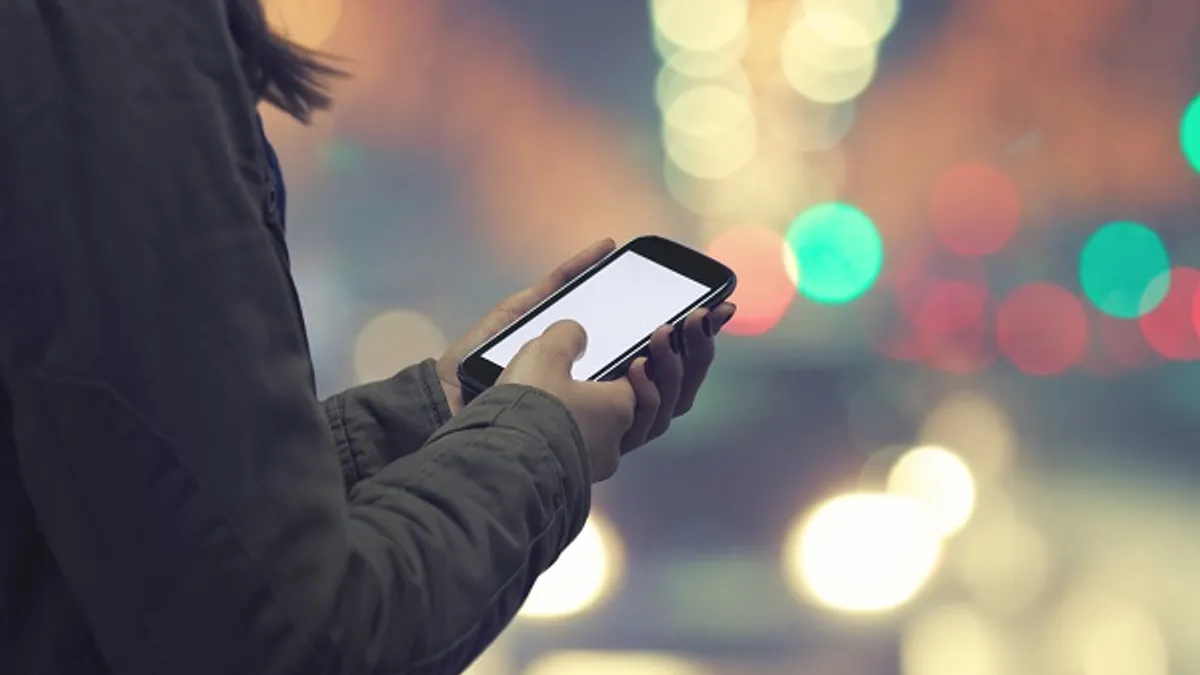Marketing needs to adapt. As consumers become more empowered through their wider and constant access to smartphones, social media and information, the shopping journey is being reshaped in their favor. And at a time when ad blocking tech appears to have the advantage over the advertising community, putting the consumer front and center is in brands' best interests.
At The Economist's Marketing Unbound event last week in New York, marketing executives from several different industries agreed that there is one key ingredient missing from marketing today: Long-lasting consumer relationships. Rather than look to build those relationships, marketers often forget to see past the usual metrics, such as clicks and ROI.
Marketo's Group VP of Marketing Chandar Pattabhiram put it simply: "Marketing isn't just B2B or B2C... marketing is 'Business to Human,' that's what it's about."
Context matters
The importance of the customer experience came up several times during the conference, taking center stage for marketers who are currently seeing a surge in ad blocking and the evolution of the consumer shopping journey. As these two trends take hold, building relationships with consumers is crucial for brands to stay human, authentic and top-of-mind.
However, there's a catch. As marketing becomes more integrated with data, relying too heavily on statistics can overpower the human element of campaigns.
"Today, consumers of any age are 'Generation X,' or 'Generation Expectation,'" Joseph Coughlin, director of MIT AgeLab, said at the event. "You're not compared to competitors anymore. You're compared to every experience ever. Context is what matters across generations."
For Coughlin and his fellow panelists, that means brands need to go back to the basics, which they argue can only be done by figuring out what consumers need — something that data can help marketers pinpoint.
But data-driven marketing can only take brands so far. The panelists agreed that Big Data cannot replace creativity, but it can inform ideas and, most importantly, help them better understand their target consumers.
#MITAgeLab's @josephcoughlin: Big Data is not a substitute for Big Ideas. #marketingunbound
— Natalia Angulo H. (@natisangulorico) March 24, 2016
"Big data is tactical and it offers consumers guidance, but big data doesn’t create a vision that gets the consumer excited and say, 'this brand offers a lifestyle that I want,'" Coughlin said. "We've gotten to a point where we believe, 'I crunch therefore I am,' but I'd argue we need to go back to marketing's roots, thinking about good ideas."
Marketing with purpose
Through data, brands can get to know consumers better, and through ideas, they can engage them. As long as marketing serves a useful purpose, it can achieve its goals.
"Think of marketing like a product: it has to have inherent value to the customer," Jeff Wright, vp of strategy and marketing at Autodesk, said during a panel.
When it comes to email, Autodesk feels it is important to "earn the right to engage with customers before you engage," Wright explained. Marketing has to add value.
"People are really good at smelling inauthenticity." -Jeff Wright @autodesk #marketingunbound pic.twitter.com/w24VK06fxf
— Jay Mandel (@jaymandel) March 24, 2016
So how do you build long-lasting human connections as a marketer?
For JetBlue, that means taking advantage of opportunities to do random nice things, which both helps elevate the brand, but more importantly, allows brands to engage with consumers in meaningful ways.
Jamie Perry, JetBlue's VP of brand and product development, shared two stories with the audience during a panel discussion that illustrate how the airline company is taking advantage of these opportunities. The first involved a passenger who tweeted he was late for his flight and wouldn't have enough time to grab a coffee. JetBlue's social media team saw the tweet and met the passenger at his gate with his coffee order. Perry said the passenger was so surprised and thankful that he paid it forward by telling all of his friends and social network.
The second example Perry shared was just as organic, but perhaps not quite as spontaneous. It inolved a young man who wanted to propose to his then-girlfriend on a JetBlue flight. When he contacted the airline, they agreed to help make it happen. (In case you were wondering, she said yes.)
.@JetBlue was founded to bring humanity back to travel. 'We try to demonstrate that in our communications.' #MarketingUnbound
— The Economist Events (@TheIdeasEconomy) March 24, 2016
After the proposal, the couple was so pleased with their experience with JetBlue, that they invited all the passengers on the plane — pilot and flight crew included — to their wedding. These "surprise and delight moments" allow brands to stay authentic, but also reach target consumers in genuine ways.
"We cannot control the way customers come to us, but we can control the way we deal with them when they do, and ensure they leave feeling good about it," Perry said.






















